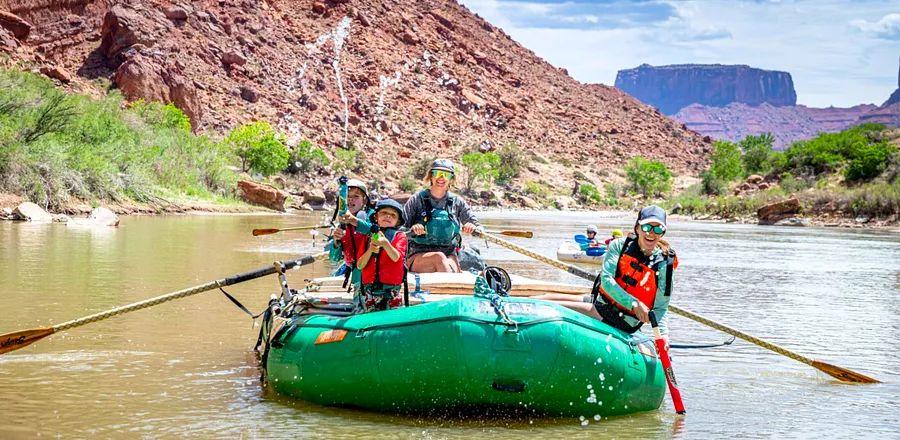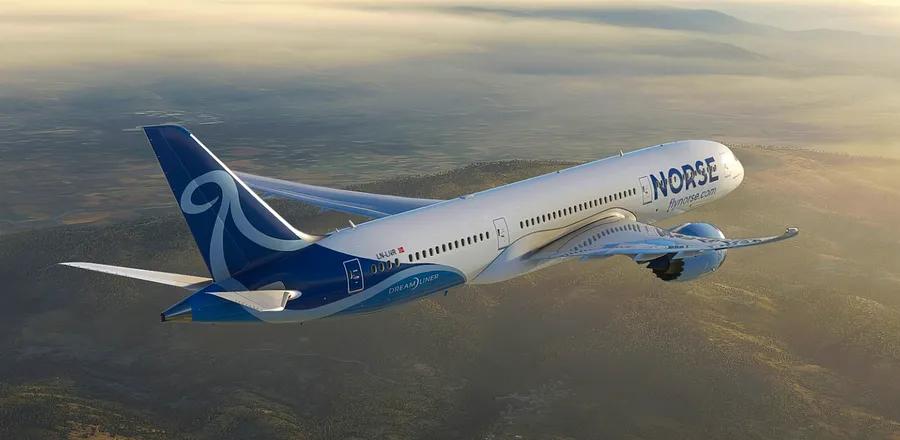How My Autistic Child Discovered Accessible Adventure—and Yours Can Too

For over a decade after my son was born, my adventurous family didn’t ski or snowboard even once. I wondered, how could we, with an autistic child who feared heights, was overwhelmed by noise, and struggled to keep up with lessons? Then a friend introduced me to the lessons offered by the U.S. Adaptive Recreation Center at Bear Mountain Resort in the San Bernardino Mountains.
Thanks to the right equipment and an instructor from USARC, he learned to ski without the added pressure. In fact, my son advanced more quickly than I did when I transitioned from snowboarding to skiing during that trip. By the second day, he was stopping near the bottom of the slope, turning back to smile at me as I made my way down.
“We hear these stories every week,” said Brian Essig, a program manager at the National Ability Center in Park City, Utah. “‘I never thought we would be able to do this again after my son’s diagnosis.’ Facilities like NAC really change that perspective.”
Let me be clear, my now six-foot-tall son still grips the ski lift with white knuckles, but facing this significant challenge has built his confidence over the years, encouraging him to try a variety of sports and activities—from surfing and stand-up paddleboarding to horseback riding, water slides, and zip-lining.
Across the U.S., numerous adaptive recreation organizations are dedicated to providing tailored instruction for individuals of all ages with physical and developmental disabilities. Whatever activity is on your bucket list, from sailing and kayaking to skiing and snowboarding—even mountain biking, river rafting, skateboarding, and high ropes courses—you can likely find the right support and equipment at these centers.
The challenge lies in locating them. Most adaptive recreation organizations operate with limited advertising budgets, so unless you have a well-connected friend or live near a ski resort, their existence might remain a mystery. However, many of these organizations are listed in the nonprofit Move United’s online membership directory.
Reaching out to one of these organizations is a fantastic way to kickstart your family’s next outdoor adventure. It benefits everyone, allowing kids with ASD to enjoy some independence while giving siblings a chance to be the center of attention for a change. Many organizations offer summer camps and scholarships to ensure inclusivity, and lessons are generally more affordable than private sessions, thanks to grants and donations.
Here are some attractive options available in various states for adaptive outdoor recreation training.
California
The U.S. Adaptive Recreation Center offers ski and snowboard instruction at Bear Mountain Resort, located 90 minutes southeast of Los Angeles. Using tethers, poles, and ski tip connectors, USARC's specially trained instructors guide students at their individual pace, skiing backward in front of them to assist with stopping and turning. According to executive director Sara Rosell, individuals with autism comprise the largest group in this program. The instructors are skilled in effectively communicating with these sensitive learners, ensuring a successful day on the slopes. Parental support is crucial for encouraging kids to embrace new experiences and step outside their comfort zones. “The parents’ role is immense in helping them open up and providing these opportunities,” Rosell noted. In the summer, USARC offers lessons in water skiing, fishing, and paddle sports on Big Bear Lake. Further north, Disabled Sports Eastern Sierra provides similar programs at Mammoth Mountain.
Colorado
The National Sports Center for the Disabled in Winter Park provides therapeutic horseback riding and water activities such as kayaking, canoeing, rafting, and paddleboarding on the Colorado River, along with summer camping experiences. In winter, their adaptive ski school offers a range of skiing options, including snowboarding and snowshoeing. Diane Eustace, who oversees operations at NSCD, mentions that many autistic kids find joy in Nordic skiing because it allows them to appreciate the mountain's beauty without the crowds. (This is on our list to try this winter.) Horseback riding is also a major attraction, with Eustace observing that some kids with limited verbal skills start giving commands to horses after spending time with them. They offer lessons, family trail rides, and a rodeo day camp where children can participate in barrel racing at their own pace.
“Often these kids undergo various therapies; here, they gain independence, a bit of freedom, and a lot of fun,” Eustace shared.
Maine
Looking to cross Acadia National Park off your family’s bucket list? Maine Adaptive Recreation, the largest year-round adaptive recreation program in Maine, offers paddle sports instruction at this iconic national park, as well as at Range Pond State Park in Poland Spring. During the summer, they also provide adaptive mountain biking and on-trail cycling near Portland. From January to March, the focus shifts to alpine skiing at various local mountains, including Sugarloaf, and Nordic skiing at Pineland Farms in New Gloucester. All general lessons are completely free, with equipment and lift tickets provided.
Washington
The Footloose Sailing Association offers sailing lessons for individuals with all types of disabilities, along with their families and caregivers. Supported by the Bill and Melinda Gates Foundation, this nonprofit hosts 10 sailing days each summer on Lake Washington near Seattle, featuring two half-day sessions. An annual overnight camping trip to Blake Island off Puget Sound is also part of their offerings. Additionally, the Outdoors for All Foundation runs ski programs in winter and organizes kayaking, hiking, and cycling activities during warmer months.
Utah
The National Ability Center operates in both Park City and Moab, providing kids and young adults with opportunities for mountain biking, camping, and white-water rafting in summer, along with skiing and snowboarding in winter. The Park City campus features a lodge for family accommodations, a facility with 300 bikes—including recumbent cycles and trikes for children with balance challenges—and a rock-climbing wall and ropes course with a zip line for both parents and kids without sensory sensitivities. This fall, after conducting winter sports from temporary trailers at the base of Park City Mountain, they will unveil a new 10,000-square-foot, state-of-the-art ski-in, ski-out instruction center for individual and family lessons. It’s best to call ahead for reservations and to plan your visit.
Evaluation :
5/5



